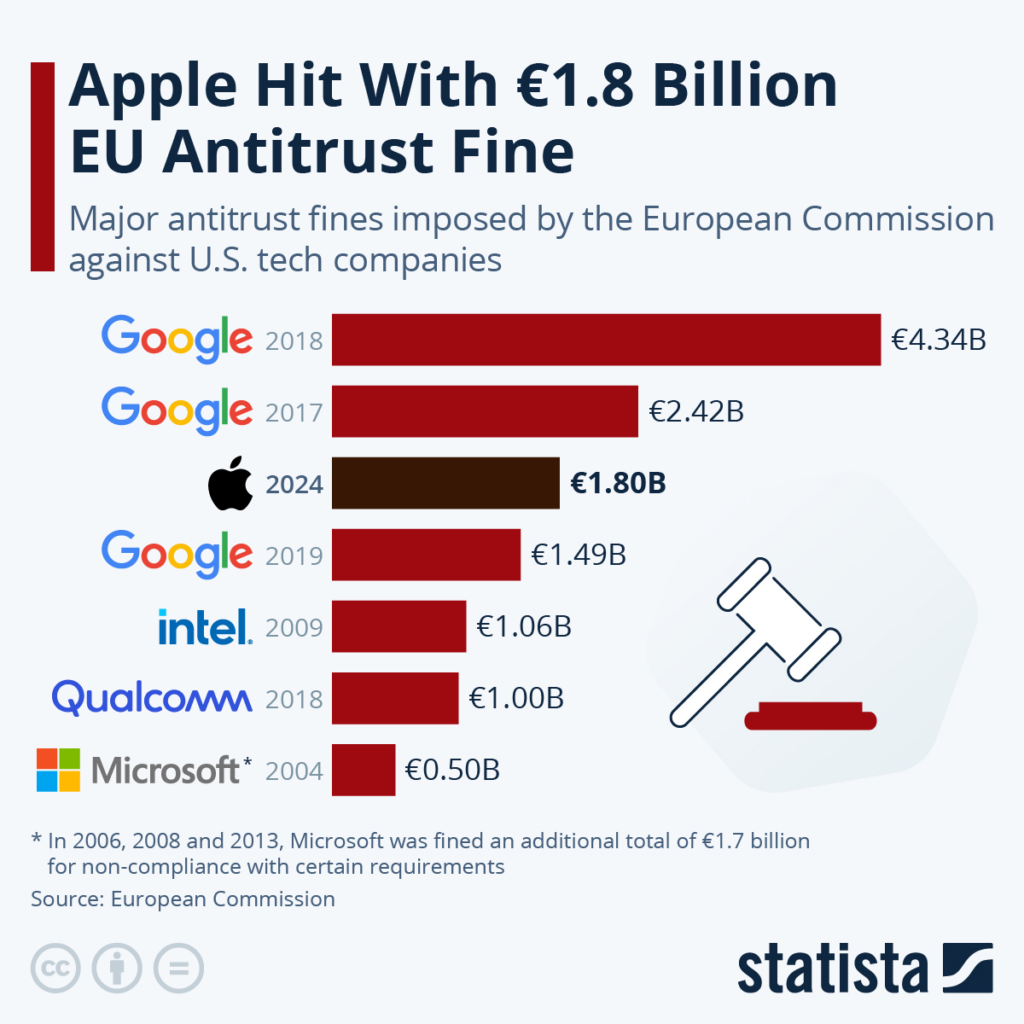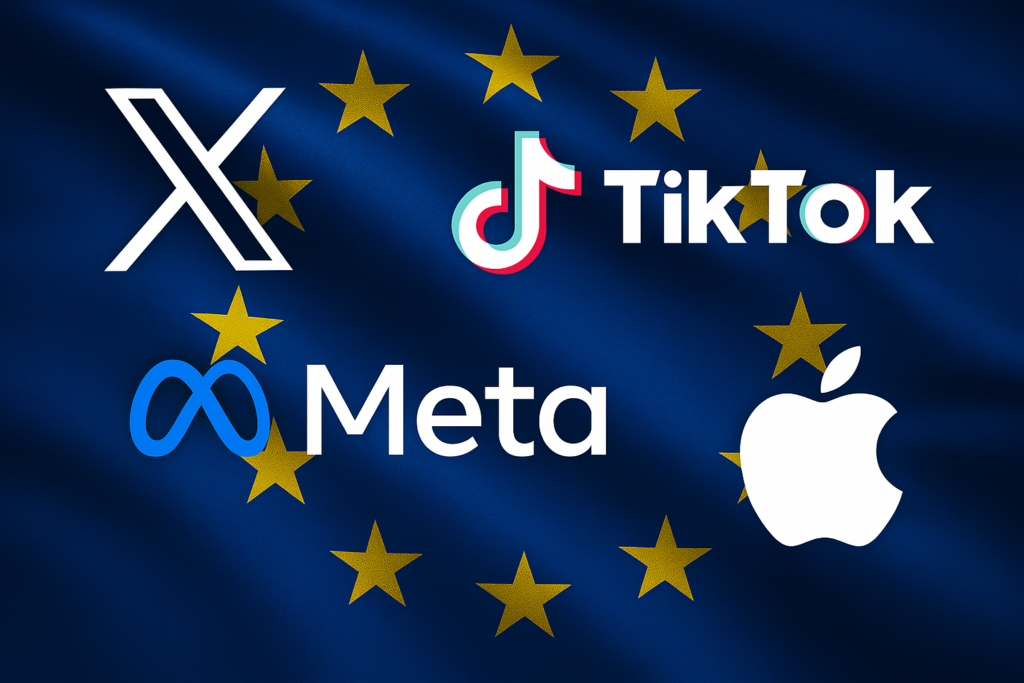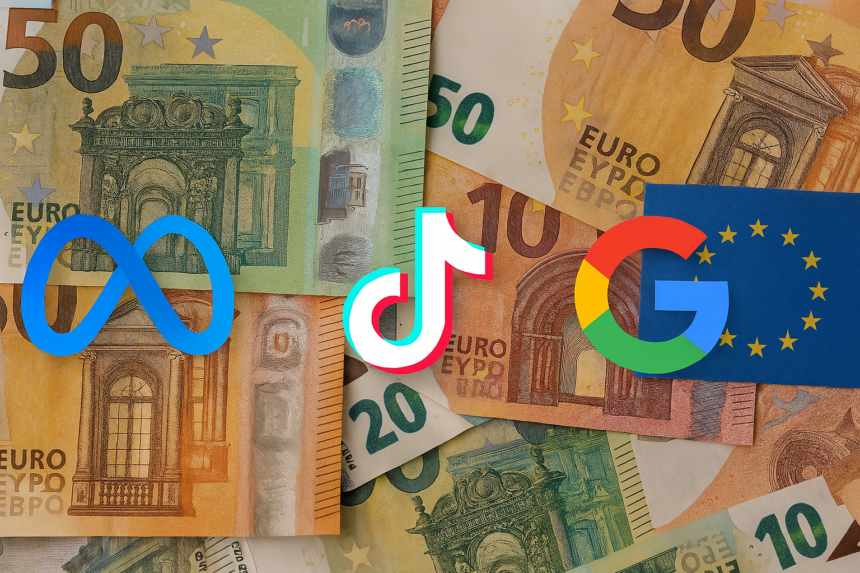The European Commission has collected €58.2 million in fines and fees from large tech platforms as part of the Digital Services Act (DSA) enforcement. The DSA, introduced in late 2023, enforces new rules for Very Large Online Platforms (VLOPs) with over 45 million monthly users. These platforms are required to improve content moderation and platform accountability.
Since February 2024, the European Commission has started charging these platforms supervisory fees to fund the cost of enforcing the DSA in 2025. Some of the largest tech giants, including Meta, TikTok, and Google, have already filed lawsuits to challenge the charges. Despite the legal pushback, the European Commission continues monitoring VLOPs as part of the considerable effort to ensure safer digital spaces for users.
What’s Happening & Why This Matters
The European Commission has launched a comprehensive effort to hold platforms accountable for the content they host and spread, particularly regarding illegal activities and misinformation. The DSA requires VLOPs like TikTok, Meta, and Google to adhere to strict regulations around user safety and content transparency.
The Commission has levied fees on these platforms to support enforcement costs as part of this initiative. The total fines for 2023 amount to €58.2 million, which will be used to fund monitoring and administrative efforts to ensure the platforms comply with the DSA. This includes additional staff recruitment, digital content safety training, and platform practice investigations.
The fees imposed on VLOPs can reach up to 0.05% of a platform’s worldwide profits from the previous year, with the Commission using these funds to cover enforcement-related costs. This move is designed to help platforms take responsibility for user safety and the content they distribute. However, some companies, including Meta, Google, and TikTok, have contested the fines in court, arguing that the fees are disproportionate.
Legal Disputes
The European Commission faces legal challenges from the platforms it has fined. Meta and Google have filed lawsuits against the Commission, asserting that the supervisory fees are unjustified and violate their rights. These legal disputes are ongoing, and the platforms have yet to see final decisions in their favor. In addition to Meta and Google, TikTok is also expected to mount a challenge, potentially extending the legal battle for months or even years.
The tech companies’ lawsuits seek to overturn the fines and halt the enforcement of the DSA’s requirements. At stake is the future of how VLOPs will operate in the European Union and whether the DSA’s ambitious regulations can withstand legal scrutiny.

Creating Safer Online Spaces
The European Commission has increased its staff to handle the growing demands of the DSA better. Over the past year, 51 new hires have been made in data science, legal affairs, and technology to bolster the Commission’s enforcement efforts. This recruitment drive will continue as the Commission strengthens its digital governance initiatives.
Additionally, the Commission has undertaken formal investigations into the operations of platforms like X (formerly Twitter). These investigations are intended to identify potential violations of the DSA and ensure that platforms adhere to the rules for content transparency and user safety.
DSA vs. Tech Giants

As Meta, Google, and TikTok continue to challenge the supervisory fees imposed by the European Commission, the future of the DSA’s enforcement remains uncertain. If the lawsuits are unsuccessful, the Commission will continue to press for greater accountability from the world’s largest tech companies.
Meanwhile, the Commission is focused on expanding its monitoring capabilities and ensuring that the DSA effectively protects users from harmful content. The European Union aims to set global standards for digital content safety, with the DSA at the heart of this strategy.
As more platforms comply with the DSA, we will likely see better content moderation practices and a safer digital environment. The lawsuits are likely to shape the future of digital content regulation, both in Europe and beyond.
TF Summary: What’s Next
In the coming months, the European Commission will continue to monitor and enforce the DSA despite the ongoing legal challenges from Meta, Google, and TikTok. As the lawsuits unfold, the Commission may revise its approach to enforcement or strengthen its defenses, depending on the outcome. Meanwhile, VLOPs across the digital space must adjust to the regulations and adapt to the changing demands of user safety and content responsibility.
These ongoing battles will determine the future of tech regulation in Europe. The DSA could become a model for other regions seeking to regulate digital platforms while also fostering a global conversation about online accountability.
— Text-to-Speech (TTS) provided by gspeech


